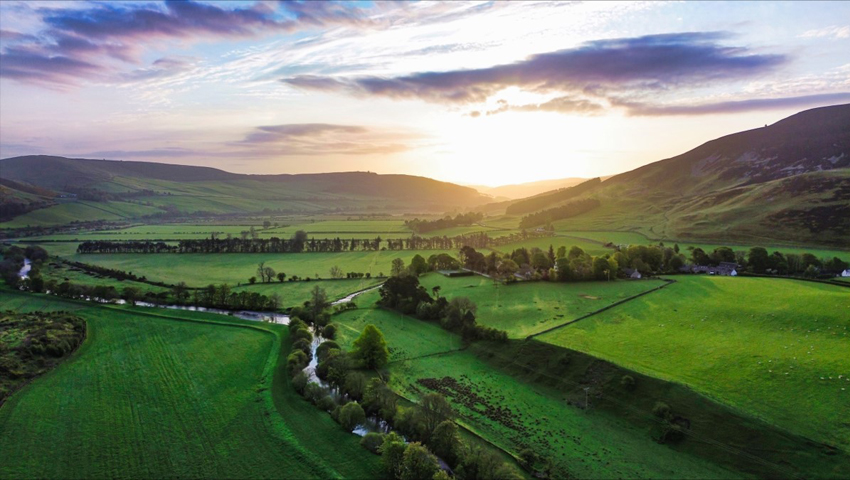PROJECTS across Scotland that save threatened species, restore flower meadows and reduce flooding have been awarded a share of £4 million.
Managed by NatureScot, the Helping Nature fund is an element of the Scottish Government’s flagship £65 million Nature Restoration Fund.
The fund supports practical nature restoration projects with grants of £25,000 to £250,000. In this latest round of awards, 27 projects have been offered grants totalling £4.1 million.
For example, the Royal Zoological Society Scotland is being awarded £201,907 to help restore five highly threatened invertebrates: the pine hoverfly, the dark bordered beauty moth, the medicinal leech, the pond mud snail and the small scabious mining bee. The recovery of these highly range-restricted species will drive the restoration of connected, healthy habitats and inspire the next generation of conservationists through meaningful, paid work placements.
Merlindale Nature has been granted £140,416 to restore the Tweed Meadows flower-rich meadow habitat across 19 sites, totalling 53 hectares, in the Scottish Borders. Tweed Meadows will make land-management changes which will tackle biodiversity loss and help to halt the decline of pollinators by reducing habitat loss and increasing food sources and connectivity.
A further project will enhance natural flood management, reduce flow pressure and erosion and improve biodiversity on the River Earn. By removing a section of embankment, near the Bridge of Earn in Perthshire, the river will be reconnected with the flood plain on haugh land. As well as creating a new mosaic of open water and wetland habitats, existing habitat will be better connected with small, shallow ponds. Led by Lockett Agri-Environmental, this project receives £141,100.
Biodiversity Minister Lorna Slater said, “I’m delighted that our Nature Restoration Fund is supporting this diverse range of projects that showcase the wide-ranging benefits of nature restoration, for people and communities. From providing flood prevention and improving access to green space, as well as helping biodiversity and climate.
“Our ambitious Biodiversity Strategy sets out our goal to be nature positive – halting biodiversity loss by 2030 and reversing declines by 2045. As these projects demonstrate, nature restoration in all its forms can help to generate opportunities for business and support thriving rural, urban and island communities.
“Right now, we’re consulting on Scotland’s overall Biodiversity Framework, which includes our proposals for the upcoming Natural Environment Bill and the introduction of statutory nature recovery targets.”
NatureScot Chair Professor Colin Galbraith said, “Through the Nature Restoration Fund, we can support vital work to restore Scotland’s species and habitats back to being healthy, vibrant and thriving.
“The recent State of Nature report laid bare the dire situation facing our wildlife, but there is hope. The current consultation on Scotland’s Biodiversity Strategy is an important chance for us all to get involved in creating the transformational change needed to protect and restore our land and seas.
“Now more than ever, we need nature-based solutions, like the ones we are announcing today. They can really help to stop biodiversity loss and enable us to move towards a nature-rich, net-zero future for everyone in Scotland.”
